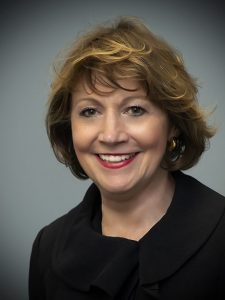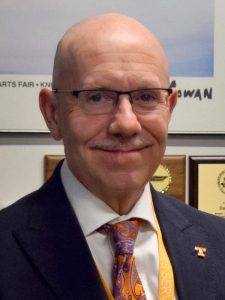Over the past decade, higher education has been dealing with rapid change at an ever-increasing rate. Regulatory issues, student debt, escalating costs, mounting expectations, international competition, technology, and declining student populations are hitting colleges and universities from all directions. Most recently, COVID-19 has been added to the mix, further depleting resources.
Recognizing the pressing need for a governing framework that is better structured to meet these ongoing challenges, APPA completed a review of its policies, practices, and bylaws in 2018 using member surveys and a comprehensive Strengths, Weaknesses, Opportunities, and Threats (SWOT) evaluation. This included researching current governance models for nine other education associations, all selected from the Council of Higher Education Management Associations (CHEMA).
This review of the governance structure was the capstone to the newly created visionary strategic framework, Preparing for Every Future, which upgrades/modernizes many established programs and leadership roles in APPA, as well as the allocation of financial resources. Among the changes is a reorganization of the Board of Directors, which upgrades and modernizes many established programs and leadership roles in APPA, as well as the allocation of financial resources. The end result of this in-depth and candid self-evaluation was the reorganization of the Board of Directors, which went into effect in July 2021. APPA reduced the size of the board and the number of board committees; transitioned from a member committee structure to a stakeholder/engagement group approach; permanently replaced the in-person annual conference with a virtual facilities summit; and added a new series of smaller, more intimate gatherings of in-person educational programs called Targeted Titles & Topics (T3 series).
Overhauling APPA Governance

Lander Medlin
APPA determined that a restructured board was needed to successfully implement the visionary strategic framework and make management more effective, efficient, and responsive. The new strategic framework will help APPA build on its core strengths in professional development and community, with the goal of becoming the premier continuous learning provider for higher education facilities management. The restructuring was essential for achieving an especially high-value objective: a smaller, agile, and more strategic board. “Most important,” says Lander Medlin, president and CEO of APPA, “the external rate and pace of change impacting the education sector requires greater responsiveness to a forward-looking futures focus from the association. Jack Welch, former CEO of GE, once said that ‘if the rate of change outside an organization is greater than the rate of change inside the organization, the end is near.’ Keeping ahead of change is absolutely critical for our long-term viability as an association.”
Committee and Program Changes
The new strategic framework transitions from the traditional member committee structure to a stakeholder/engagement group model in order to streamline board operations and improve efficiency. For example, vice-president-led committees have been removed as a board activity because, being essentially operational in nature, they could be well-managed by staff (with guidance from the president and CEO as needed). “We also moved to a larger number of volunteer engagement offerings via standing activity teams, stakeholder groups, councils, and project task forces to allow for and further encourage increased engagement throughout the membership,” adds Medlin.
Although it was popular, the annual conference was a tradition that needed reinvention, especially considering diminishing institutional financial resources and the abundance of high-quality programs made available by International APPA and the regions and chapters. Some APPA members also expressed the desire for smaller, more intimate gatherings with specific titles and/or targeted topics, hence the T3 series.

Dave Irvin
“By exploring new approaches and combining them with extensive virtual offerings with targeted in-person conferences surrounding key critical topics, we hope to cost-effectively deliver professional development to a greater number of members who have never enjoyed these opportunities,” says Dave Irvin, associate vice president for facilities at Florida State University and APPA International’s Board Chair. “We also plan to reinforce and enhance a greater number of regional and chapter conferences, as well as provide relevant on-point discussions, resources, and networking surrounding the abundance of challenges and opportunities we all face.”
APPA’s primary in-person program, called APPA U, encompasses two large program offerings—the Institute for Facilities Management (four tracks covering the core competencies or major responsibility areas for any educational facilities organization) and the Leadership Academy (four levels covering leadership, starting with the individual and moving on up through the organization/profession).
Combined, these two programs support the professional development of nearly 1,000 individuals per year and, as such, this comprehensive, high-quality training cannot be replicated at the regional and chapter levels. However, APPA is looking for creative ways to partner with the regions to deliver this content for their fall annual conferences. “This reduces the duplication of programming that previously existed and gives everyone even more opportunities to target and further expand their learning and networking opportunities,” says Medlin. “We also recognize that our member institutions do not have unlimited funds/resources, so it is important not to duplicate or replicate each other’s programs, but instead partner with and deliver unique, targeted content across the chain of delivery provided by International APPA and the regions and chapters.”
Two New Task Forces
Over the past several years, facilities teams have led their educational institutions through unique and often unprecedented situations, doing their best to meet these challenges head on without necessarily having the ideal specific skillsets and training to deal with them (for example, the COVID-19 pandemic). With no suggestion that this steady and varied procession of challenges will ease in the near future, “the board of directors realized APPA does not have the capacity to focus on everything and still be effective,” says Irvin. “We need to be strategic in what we prepare for, make well-informed decisions about where our greatest needs and risks might be, and determine how and where APPA International can have the greatest impact.”
To identify these areas, the Board of Directors created two task forces to focus on one major technology challenge and one major people/teams challenge. Selecting these two topics was the board’s initial effort at establishing a strategic, long-term plan for key issues. “Task force discussions were wide-ranging, interactive, inclusive, forward-thinking, creative, and highly productive,” says Irvin. After in-depth discussions, it was decided that task forces would be created for:
Both these subjects will have significant, rapidly growing impacts on how educational facilities management departments run their operations and capital programs.
“If we do this right and persevere, the impact will be evident in elevating the profession to new heights that make it more interconnected and aligned with our institutions’ mission and needs and ensure greater attractiveness of the profession itself to multiple generations,” says Medlin.
Titles, Topics, and Strategies
Targeted Titles & Topics (T3) is a new approach for connecting presentations and discussions, and for networking with APPA members and Business Partners regarding areas of special interest and challenge. “We plan to communicate these opportunities widely utilizing a number of approaches, including networking and personal contacts,” says Irvin.
A description of the four T3 topics is available on the APPA website, and each program is built out in anticipation of going live with registration. The four topics are:
- Leveraging Operational Technologies for Occupant-Centric Performance (previously held in June 2022)
- Critical Issues & Challenges Facing Senior-Level Facilities Officers (July 27-29, 2022)
- Space and All Its Entanglements (week of October 15, 2022)
- Operational Guidelines for Educational Facilities: Custodial, Maintenance, and Grounds (January 10-12, 2023)
Four strategies have also been identified that represent a multipronged approach toward ongoing professional development, including how to implement, monitor, and analyze these four best practices in educational facilities management:
- Campus space utilization
- Skilled workforce & the future of work
- Finance/budget framework
- Elevating the profession
APPA will use a variety of communication strategies and professional development programming events to educate members and inform communities regarding these critical topics and to explain how they can help mitigate the challenges educational institutions and their facilities organizations face.
However, notes Irvin, how APPA approaches each strategy after these initial launches will depend on feedback from members.
“They have unique experiences, expertise, and innovative approaches that they undertake every day,” he says. “Many have already contacted us, volunteering to participate and share ideas. That has always been a strength of our profession, and it is encouraging to see how these strategies are energizing continued community engagement.”
Moving Forward
For most people, change—especially from long-standing policies and procedures—can be stressful and difficult to accept. APPA is committed to informing members in multiple ways about these changes and new directions, to ensure its messages and goals are received and understood. “It was even more difficult launching this messaging during the pandemic,” says Medlin. “That said, the positive level of support for these changes by the membership, board, regions, and staff has been refreshing.”
“Members continue to offer suggestions, ideas, and changes,” adds Irvin. “We encourage all responses, and the majority have been enthusiastic and positive.”
Of course, some members have expressed disappointment around the need to change and reinvent, prepare for a different future, and deal with all the challenges that come with it. “Educating members about the changes takes a long time. You must communicate, communicate, communicate, and then communicate some more. That takes patience, perseverance, and persistence.”
Medlin is eager to point out that this restructuring will open many more opportunities for member engagement. “You don’t have to know someone to engage in a stakeholder group or be on a team,” she says. “There are many ways to establish yourself with an associated community of stakeholders. Just fill out a one-page ‘Elements of Formation’ form. Frankly, these types of affinity groups will be key to DEI and that sense of belonging we all seek.”
For 2022-23, APPA plans to aggressively implement the board’s recommendations, including the two task forces and four strategies. “We also plan to increase collaboration between APPA International and our regions,” Irvin adds. “We will also continue to listen to our members for new ideas as we elevate our profession together.”
New or evolving challenges will continue to impact educational institutions and will therefore impact the physical facilities that make up our campuses. Change in educational facilities management is happening at the same time that higher education finds itself at a critical juncture. Maintaining the status quo is no longer a viable strategy for the educational facilities organization. Facility managers must be prepared to implement new technologies, business models, and operational/capital strategies in response to these transformational shifts—and leading the way will require innovation, courage, commitment, and resourcefulness.
Irvin notes that railroad executive Alfred E. Perlman once said, “After you’ve done something the same way for two years, look it over carefully. After five years, look at it with suspicion. After 10 years throw it away and start all over.” He is also mindful of the words of leadership expert John C. Maxwell: “Change is inevitable. Growth is optional.”
“APPA has taken that advice to heart,” says Irvin. “We are now much better positioned for success, growth, and delivering high-value services to the educational facilities management profession.”
Mark Crawford is freelance writer based in Corrales, NM, and a longtime contributor to Facilities Manager. He can be reached at [email protected].



